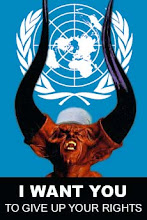
NEW DELHI — China presents itself as a schizophrenic power: a developing country on select international issues, but in other matters a rising superpower with new muscular confidence that supposedly is in the same league as the United States.
At the recent Copenhagen climate-change summit, China was the former: It loudly emphasized its membership in the developing world and quietly used poor countries, especially from Africa, to raise procedural obstacles in the negotiations.
Make no mistake: China, the world’s largest polluter whose carbon emissions are growing at the fastest rate, was the principal target at Copenhagen. But China cleverly deflected pressure by hiding behind small, poor countries and forging a negotiating alliance with India and two other major developing countries, Brazil and South Africa, who together are known as the BASIC bloc.
China escaped without making a binding commitment on carbon-emissions cuts, at least for now. But carbon-light India, with per-capita emissions just 26 percent of the world average, undercut its interest by getting bracketed with the world’s largest polluter.
Let’s be clear: On climate change, trade liberalization, currency and related issues, China — despite its emergence as a financial and trade Goliath — defines itself as a developing country and expediently seeks to join hands with poor nations so it can shield practices like manipulating the value of its currency, the renminbi, maintaining an abnormally high trade surplus, restricting goods manufactured by foreign companies in China from entering its markets, and continuing to bring on line two new coal-fired power plants every week.
But on political and security issues, it sees itself as without a peer in Asia, and is greatly enthused by the idea of a U.S-China “Group of Two.”
If a U.S.-China global diarchy were needed on any issue, it is on countering accelerated global warming. But on that issue, as Copenhagen revealed, China is not the self-touted rising superpower but a scheming power that uses poor states as a front to obstruct progress through procedural wrangling.
To impede decision-making, it sent only a vice foreign minister to meetings set for the level of heads of state. And even though it hid behind the developing nations, Western leaders did blow its cover after the summit, with the British prime minister, Gordon Brown, taking the lead to call it the principal wrecker at Copenhagen.
With climate talks set to resume this year, India has to learn the lesson from its folly at Copenhagen in joining hands with the wrong power. With its carbon-intensive, manufacturing-based economy, China’s per-capita carbon emissions are four times higher than India’s. China now is responsible for 24 percent of global carbon emissions with 19.8 percent of the world population, but India’s current contribution does not match even half its population size.
China also rejects India’s approach that per-capita emission levels and historic contributions to the build-up of greenhouse gases should form the objective criteria for carbon mitigation. China, as the world’s back factory, wants a different formula that marks down carbon intensity linked to export industries.
How much it suits China to be seen in the same class as India on carbon issues than with its real polluting peer, the United States, was made clear by the hurried post-Copenhagen telephone call the Chinese foreign minister made to his Indian counterpart to emphasize continuing Sino-Indian collaboration. But when it comes to global or Asian geopolitics, China insists India (like Japan) is in a junior league.
New Delhi can be sure that when criteria for mitigation action is defined in renewed negotiations, China will work to unduly burden India by insisting that weight should be given to elements other than per-capita emission levels and historic contributions. Having unwittingly aided the Chinese game-plan in Copenhagen, India needs to embark on a correction course.
More broadly, the post-Copenhagen Western attacks on China suggest that Beijing is likely to find it increasingly hard in the future to blunt criticism of its policies and practices by jumping on the developing world’s bandwagon or by claiming to be entitled to a bit of slack as a developing country. After all, China’s practices are hurting poor and rich countries alike.
By keeping its currency ridiculously undervalued and flooding the world markets with artificially cheap goods, China has emerged as a global economic power, with its foreign-exchange coffers overflowing. But its large-scale dumping of goods has throttled competition from other developing countries and added to the economic woes in the developed world by undercutting fiscal stimulus efforts.
Worse, as the chairman of India’s largest engineering company recently complained, China is “systematically killing” manufacturing in India and other developing countries.
The serious global recession has made such unfair or assertive practices less acceptable.
Copenhagen thus was a turning point in that respect. China, the world’s largest and longest-surviving autocracy that still flouts international norms on trade, human rights and currency, is likely to come under greater pressure to fall in line or be seen as a self-serving power whose interests are at odds with the rest of the world — both developed and developing.
Brahma Chellaney is professor of strategic studies at the Center for Policy Research in New Delhi and the author of “On the Frontline of Climate Change: International Security Implications.”

















No comments:
Post a Comment